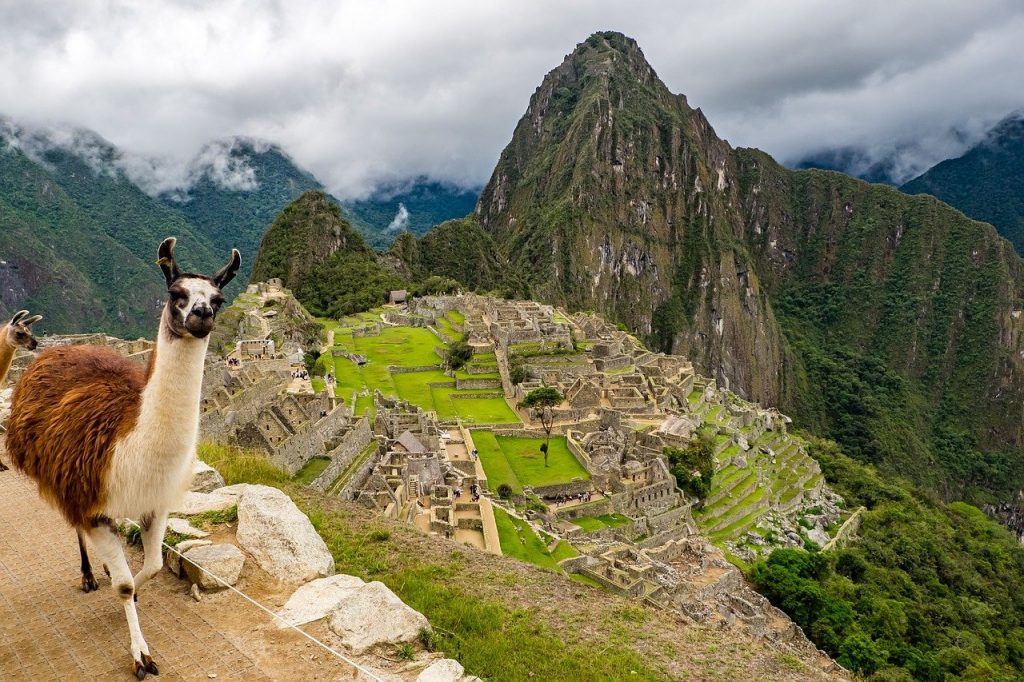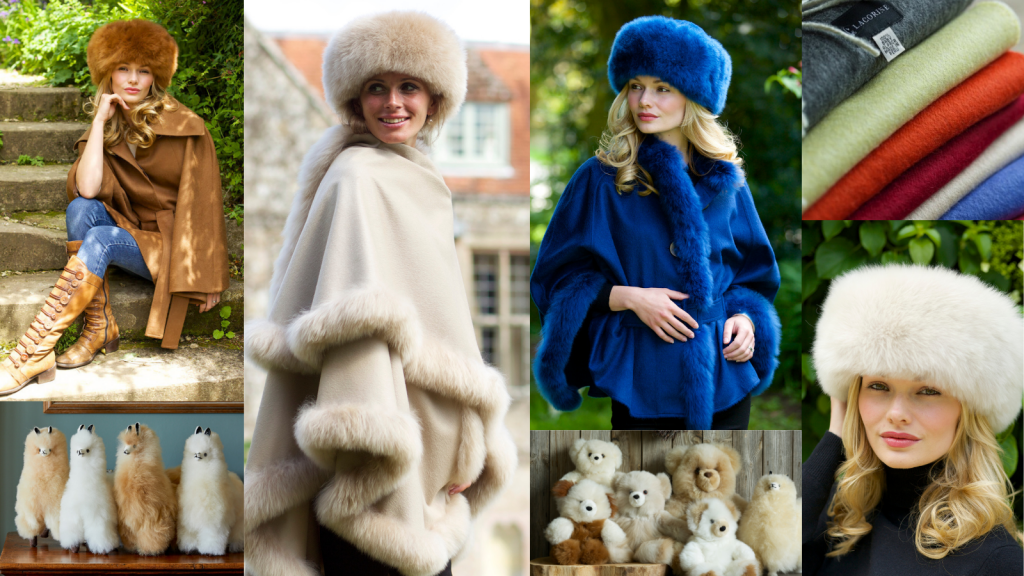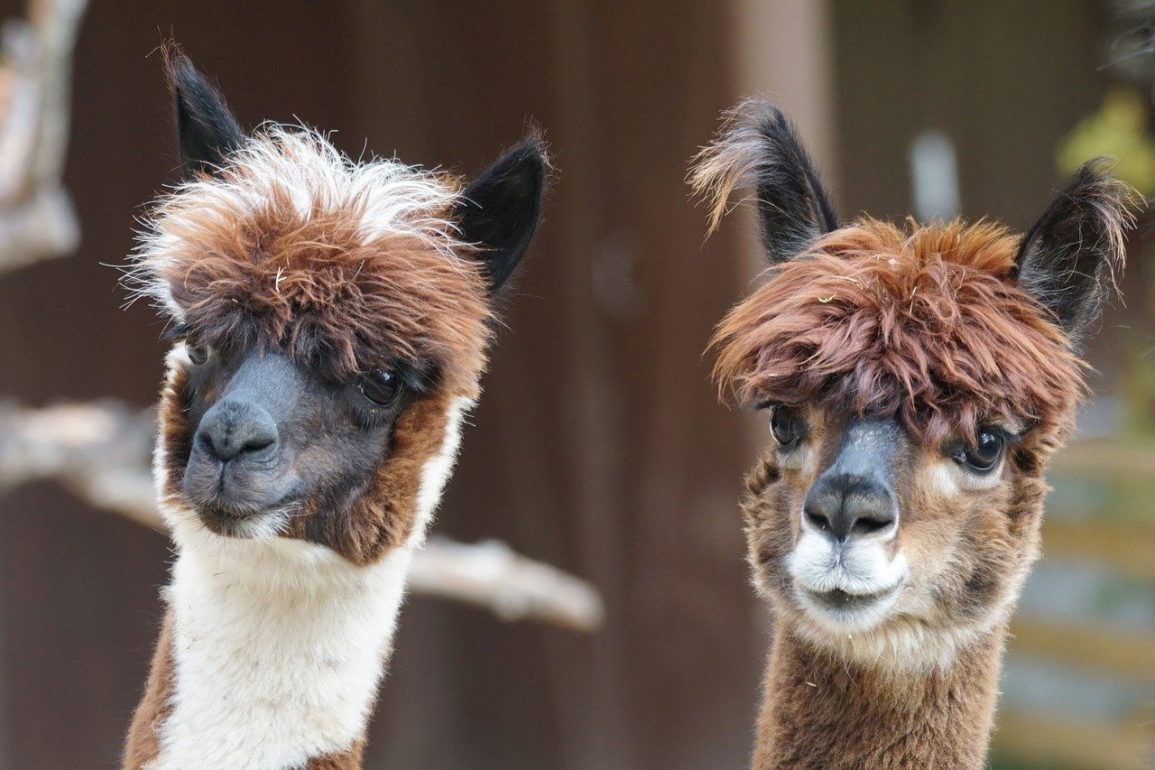Sustainable Fashion from Lacorine Alpaca Designs – Why Choose Alpaca? Perhaps it’s the versatility, sustainability and quality of Alpaca garments that may be enough to sway you.
Alpaca outperforms many other high-quality fibers not only in its high-luxe appeal but also for its luster, depth of colour and its long-life properties.
How is Alpaca Fibre produced?
Alpacas are bred purely for their fleeces. Farmers sheer them annually in the spring and their shearlings are used to produce a multitude of garments, including blankets, sweaters, ponchos, gloves, hats and scarves out of them.
Due to the harsh Peruvian Winters many young crias are overcome by the severe weather conditions and die of natural causes. ALL Lacorine fur derives from alpacas that have died naturally.

How is Alpaca sustainable?
Alpaca is more sustainable than many other animal fibers:
- It does not contain lanolin, a wax found on wool, which needs to be washed and wastes significant amounts of water. Furthermore, the process of alpaca farming does not require harsh chemicals – this means that alpaca farming is completely safe and natural for the environment.
- Alpaca also has 22 natural tones which allows it to be dyed more efficiently.
- The natural habitat of Alpacas is about 3.800 meters above sea level. At this altitude, the water supply is natural, and the land is generally not suitable for agriculture so they are using land that would otherwise not be used.
- Alpacas have a lower impact on the environment as they graze the tops of grasses instead of ripping plants out of the ground, which allows vegetation to quickly grow back. They can live for up to 17 years, run free and graze on the level heights of the Andes, in southern Peru – they are not penned in so they can descend to the plains to nibble.
- While goats and sheep have sharp hooves that damage pasture and soil, Alpacas hooves are softly padded, they have two toes with toenails on top and a soft pad on the bottom of each foot that minimizes their effect on pastureland.
- Alpaca use a communal dung heap which keeps the unwanted spread of parasites to a minimum.
The Benefits of wearing Alpaca
- Alpaca is warmer, stronger, lighter and softer than other quality contenders for high-end luxury materials such as cashmere and merino wool.
Alpaca has water-resistant properties and absorbs little humidity from the surrounding environment and it thermally insulating, making it perfect for winter wear, as well as for accessories for outdoor sports such as hiking and skiing.
Take a look at their wonderful fashion collections here


Poppy Watt


